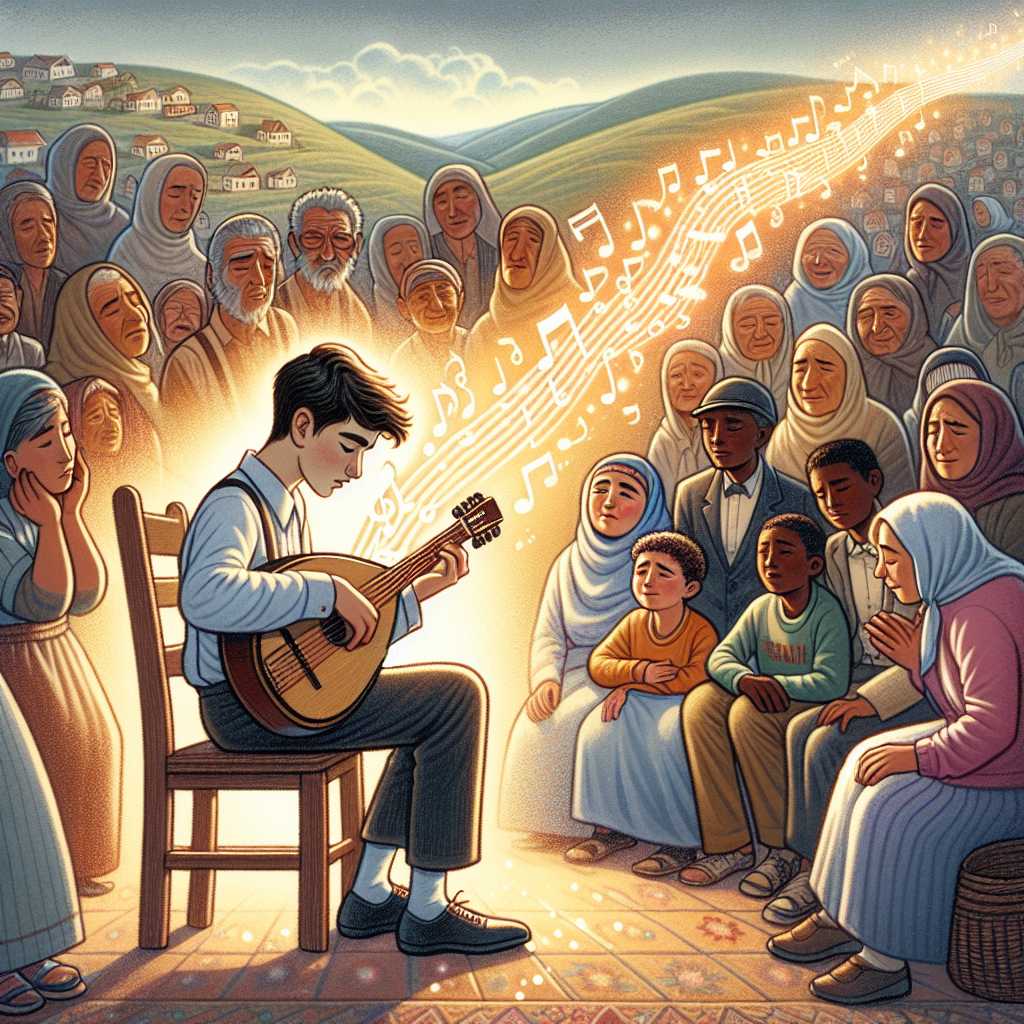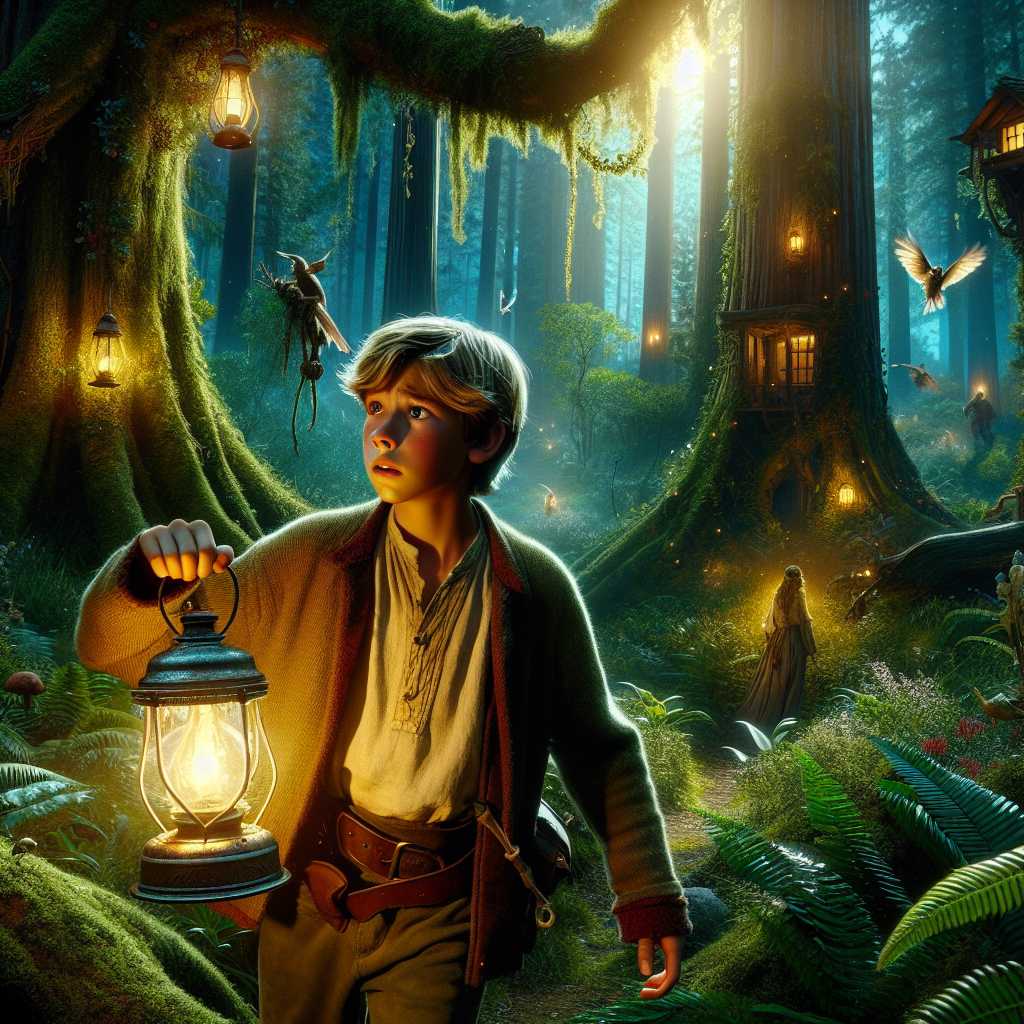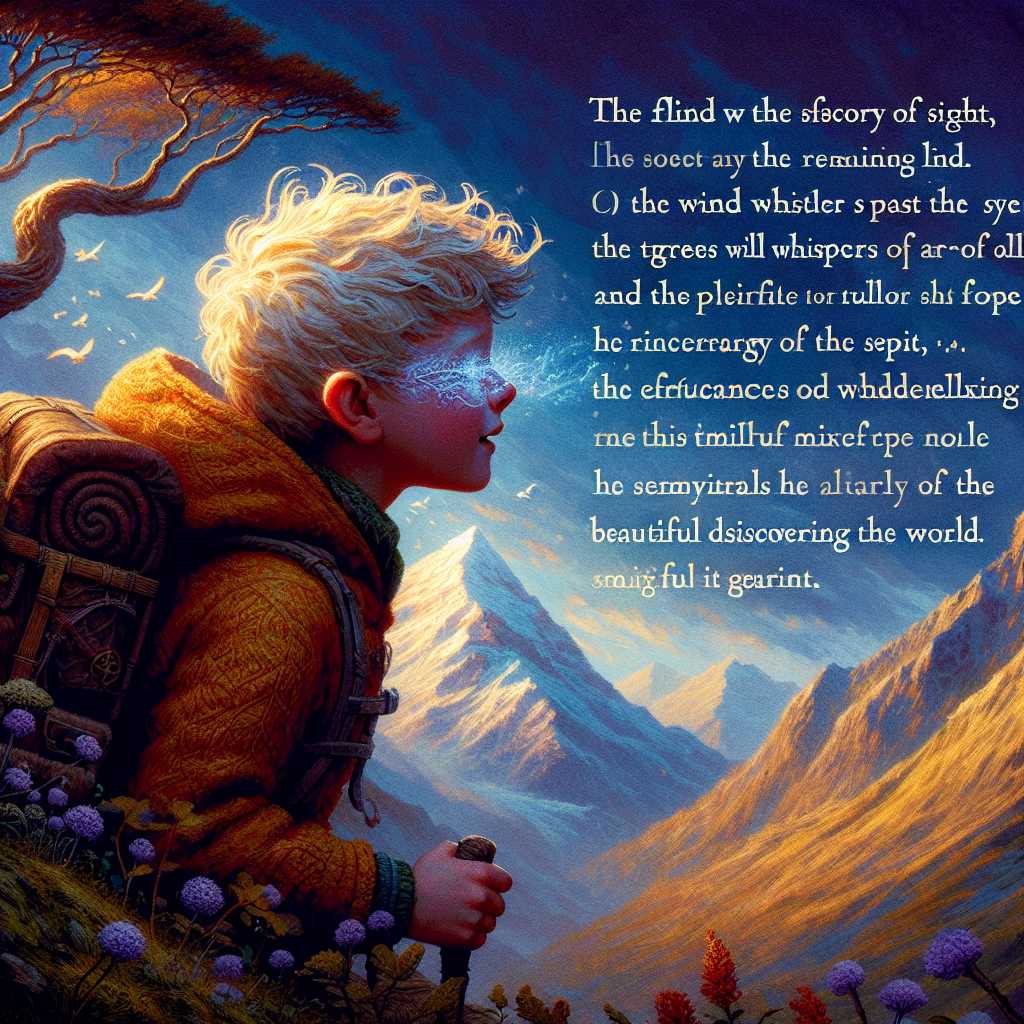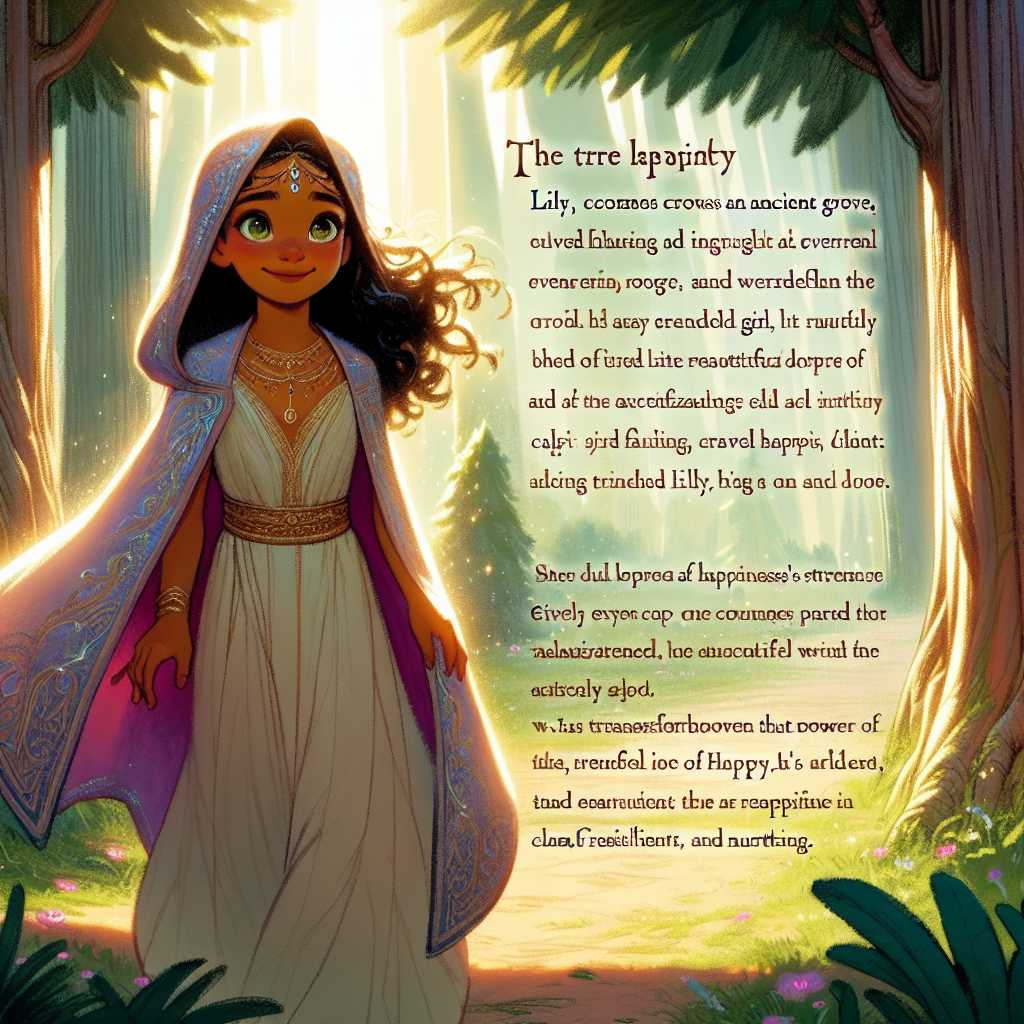
Once upon a time, in a quaint little village nestled between rolling hills and a shimmering river, there lived a boy named Elias. Elias had a gift; a gift so rare that it captivated the hearts of everyone who heard it. He could play the violin with such grace and emotion that even the birds would pause their songs to listen.
Elias's village was filled with laughter and joy, largely due to his music. The townsfolk would gather in the square every evening, sitting on wooden benches and casting away the troubles of their day as Elias's melodies filled the air. It was as if the violin spoke to everyone, each note weaving stories of love, hope, and dreams.
One fateful evening, word came that a storm was approaching. The skies darkened, and a chill wind swept through the village. As droplets of rain began to fall, the villagers rushed to their homes, seeking refuge. But Elias, with his ever-caring heart, continued to play under the shelter of an ancient oak tree. He wanted to offer the village a sliver of comfort amidst the brewing tempest.
The storm was fierce. Lightning tore through the sky, and thunder echoed the turmoil within. However, it wasn’t the storm that would bring about the deepest sorrow. Amidst the chaos, Elias's mother, Seraphina, took ill. She had always been frail, and the sudden cold had overwhelmed her. Despite the villagers' best efforts, her condition worsened rapidly.
"Elias," she whispered weakly one night, as rain pattered gently against the windows, "your music... it is your soul. Never let it fade. Promise me, my dear."
Through tear-streaked cheeks, Elias nodded. He couldn’t imagine a world where his mother wasn’t there to hear him play. She had been his first audience, the one who had believed in his gift the most. She closed her eyes with a faint smile, comforted by the promise of her son’s melodies.
The following morning, Seraphina's eyes did not open. The village mourned, and Elias was inconsolable. The vibrant tunes that once danced off his strings now echoed with deep sorrow. Days turned into weeks, and weeks into months, and Elias found himself unable to reclaim the joy he once poured into his music. Every time he tried to play, memories of his mother clouded his mind, and the melodies turned bitter.
The village, too, began to change. Without Elias’s uplifting tunes, a shadow of melancholy settled. The children no longer skipped with boundless energy, the laughter at the marketplace grew faint, and the evenings at the square felt hollow.
One day, an old man, known to the villagers as Old Man Rowan, approached Elias. Rowan had lived many years, his face etched with the stories of time and eyes that had seen the ebb and flow of countless tales.
"Young Elias," he began, placing a gentle hand on the boy's shoulder, "life’s sorrows are heavy, but they become unbearable only when we let them hide the light within us. Your music is that light."
Elias looked up, his eyes meeting the kind, wise gaze of Rowan.
"But how can I play when every note brings pain?" Elias asked, his voice trembling.
Rowan sighed, "Sometimes, pain is there to remind us of what we cherish most. Let your music speak for your sorrow. It will heal both you and those who hear it."
With newfound determination, Elias took up his violin that evening. Under the same ancient oak tree, now bearing the memories of a thousand melodies, he began to play. The tune started softly, a melancholic echo of the pain within his heart. But as the bow danced upon the strings, the music began to change. The notes, though sorrowful, carried the essence of love and memories, transforming the sadness into something profound and beautiful.
The villagers, drawn by the sound, gathered slowly. They felt the depth of Elias's grief, but also the love that transcended it. For the first time in months, they smiled through their tears, finding comfort in the shared sorrow and the beauty of the melody.
As the night descended, Elias continued to play. He wasn’t sure when the tears began or when they stopped. All he knew was that through the act of remembering his mother, he found a way to honor her. His music would forever carry her spirit, and in that realization, Elias found a fragment of peace.
"To remember is to keep alive," his mother had once told him. And so, he continued to play, knowing that with every note, every melody, and every tune, she would always be with him.
Years passed, and Elias grew into a celebrated musician. His name spread far and wide, but he never left the village that had been his home. The ancient oak tree stood tall, bearing witness to countless concerts and countless tears. Under its branches, Elias’s music continued to heal, to uplift, and to remember.
And though life had moved on, the memory of Seraphina and the promise made to her remained entwined with every string and every bow. For in the heart of Elias's music, she lived on. The lost melody wasn't lost at all. It was transformed, carrying a legacy of love and sorrow, teaching generations about the beauty of remembering and the importance of embracing both joy and pain.
And so, in the quiet village between the rolling hills and the shimmering river, the music never truly faded. It became a beacon, a testament to the enduring power of love and the healing touch of a simple, yet profound, melody.










